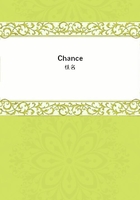
第18章 THE FYNES AND THE GIRL-FRIEND(9)
I wondered--and wondering I doubted--whether she really understood herself the theory she had propounded to me. Everything may be said--indeed ought to be said--providing we know how to say it. She probably did not. She was not intelligent enough for that. She had no knowledge of the world. She had got hold of words as a child might get hold of some poisonous pills and play with them for "dear, tiny little marbles." No! The domestic-slave daughter of Carleon Anthony and the little Fyne of the Civil Service (that flower of civilization) were not intelligent people. They were commonplace, earnest, without smiles and without guile. But he had his solemnities and she had her reveries, her lurid, violent, crude reveries. And I thought with some sadness that all these revolts and indignations, all these protests, revulsions of feeling, pangs of suffering and of rage, expressed but the uneasiness of sensual beings trying for their share in the joys of form, colour, sensations--the only riches of our world of senses. A poet may be a simple being but he is bound to be various and full of wiles, ingenious and irritable. I reflected on the variety of ways the ingenuity of the late bard of civilization would be able to invent for the tormenting of his dependants. Poets not being generally foresighted in practical affairs, no vision of consequences would restrain him. Yes. The Fynes were excellent people, but Mrs. Fyne wasn't the daughter of a domestic tyrant for nothing. There were no limits to her revolt. But they were excellent people. It was clear that they must have been extremely good to that girl whose position in the world seemed somewhat difficult, with her face of a victim, her obvious lack of resignation and the bizarre status of orphan "to a certain extent."Such were my thoughts, but in truth I soon ceased to trouble about all these people. I found that my lamp had gone out leaving behind an awful smell. I fled from it up the stairs and went to bed in the dark. My slumbers--I suppose the one good in pedestrian exercise, confound it, is that it helps our natural callousness--my slumbers were deep, dreamless and refreshing.
My appetite at breakfast was not affected by my ignorance of the facts, motives, events and conclusions. I think that to understand everything is not good for the intellect. A well-stocked intelligence weakens the impulse to action; an overstocked one leads gently to idiocy. But Mrs. Fyne's individualist woman-doctrine, naively unscrupulous, flitted through my mind. The salad of unprincipled notions she put into these girl-friends' heads! Good innocent creature, worthy wife, excellent mother (of the strict governess type), she was as guileless of consequences as any determinist philosopher ever was.
As to honour--you know--it's a very fine medieval inheritance which women never got hold of. It wasn't theirs. Since it may be laid as a general principle that women always get what they want we must suppose they didn't want it. In addition they are devoid of decency. I mean masculine decency. Cautiousness too is foreign to them--the heavy reasonable cautiousness which is our glory. And if they had it they would make of it a thing of passion, so that its own mother--I mean the mother of cautiousness--wouldn't recognize it. Prudence with them is a matter of thrill like the rest of sublunary contrivances. "Sensation at any cost," is their secret device. All the virtues are not enough for them; they want also all the crimes for their own. And why? Because in such completeness there is power--the kind of thrill they love most . . . ""Do you expect me to agree to all this?" I interrupted.